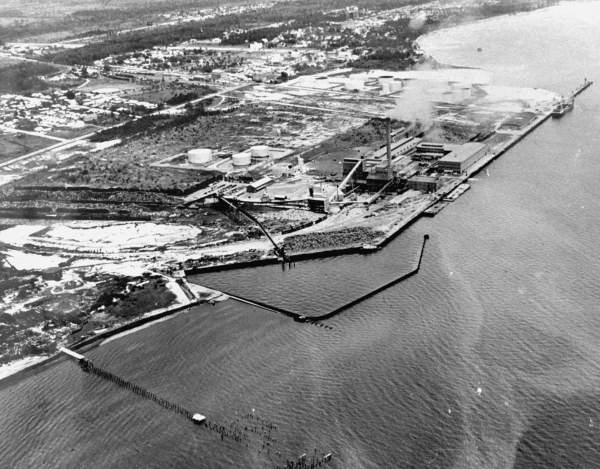Advocacy group presses for more dredge testing
At the Nov. 28 Gulf County commissioners’ meeting, several members of the Gulf County Citizen Coalition for a Healthy Future, a group of local residents formed to fight a liquid natural gas plant that Nopetro planned to build, brought up a different concern.
Known as the GCCCHF, the group raised concerns regarding future plans for dredging in St. Joseph Bay due to potential pollution impacts to the ocean and area marine life.
Deborah Mays, a scientist with a background in biomedical research, spoke on behalf of the GCCCHF. She said that while the group’s full membership numbers more than 400, about two dozen board members are the most active, meeting each week on Zoom.
The chief concern of the group is that testing conducted in 2014 and 2023, revealed “some inadequacies of the St. Joe Bay pre-dredging environmental testing for paper mill toxins.”
Mays said out of eight samples at least two of them – for dioxin and for polycyclic aromatic hydrocarbons (PAH) – were over residential soil cleanup target levels. Both chemical groups are highly toxic, insoluble, adsorb to marine sediments and remain persistent in the environment.
She also said that the testing did not core down to the full dredging depth, and thus may have underreported the amount of pollutants to be deposited on land as dredging spoils and the amount that will be exposed to the marine ecosystem.
“All samples were truncated, not to the full dredging depth,” May said. “We have clean sands on top of toxic sands, and it’s not going to have the full amount of toxins.”
She noted that the paper mill produced 25-30 million gallons of wastewater per
Day during its 60-year operation, and that for over half that time, they discharged waste from their surface impoundment through two ditches to the bay.
“Later, when the waste went through the Port St. Joe wastewater treatment plant they were not required to test for many of the chemicals we are concerned with today,” Mays said.
County Administrator Michael Hammond and Assistant Administrator Clay Smallwood, as well as Commissioner Phillip McCroan questioned Mays on her report,.
McCroan said that the GCCCHF might be putting the cart before the horse, since there is no full-scale dredging project on the table.
Smallwood said the project is comparatively small, a turning basin with a floating dock next to Eastern Shipbuilding, with all testing and sampling done in compliance with Florida Department of Environmental Protection standards,
“We’re not really trying to be alarmist,” Mays said. “We’re trying to say ‘let’s get in front of this and look at what we can do now instead of playing the alarmist game later.’
“It may be all right,” she said. “What we’re worried about in our group is that once they dredge, that will put higher levels (of pollutants) in the marine environment.
“All we want is accurate data to correct these deficiencies,” Mays said. “We want them to go deeper, with the goal of determining how much toxin we are exposing.
“We’re not against dredging, we just want accurate data and if necessary a mitigation plan,” she said. “This county commission is the last line of defense.”


Meet the Editor
David Adlerstein, The Apalachicola Times’ digital editor, started with the news outlet in January 2002 as a reporter.
Prior to then, David Adlerstein began as a newspaperman with a small Boston weekly, after graduating magna cum laude from Brandeis University in Waltham, Massachusetts. He later edited the weekly Bellville Times, and as business reporter for the daily Marion Star, both not far from his hometown of Columbus, Ohio.
In 1995, he moved to South Florida, and worked as a business reporter and editor of Medical Business newspaper. In Jan. 2002, he began with the Apalachicola Times, first as reporter and later as editor, and in Oct. 2020, also began editing the Port St. Joe Star.